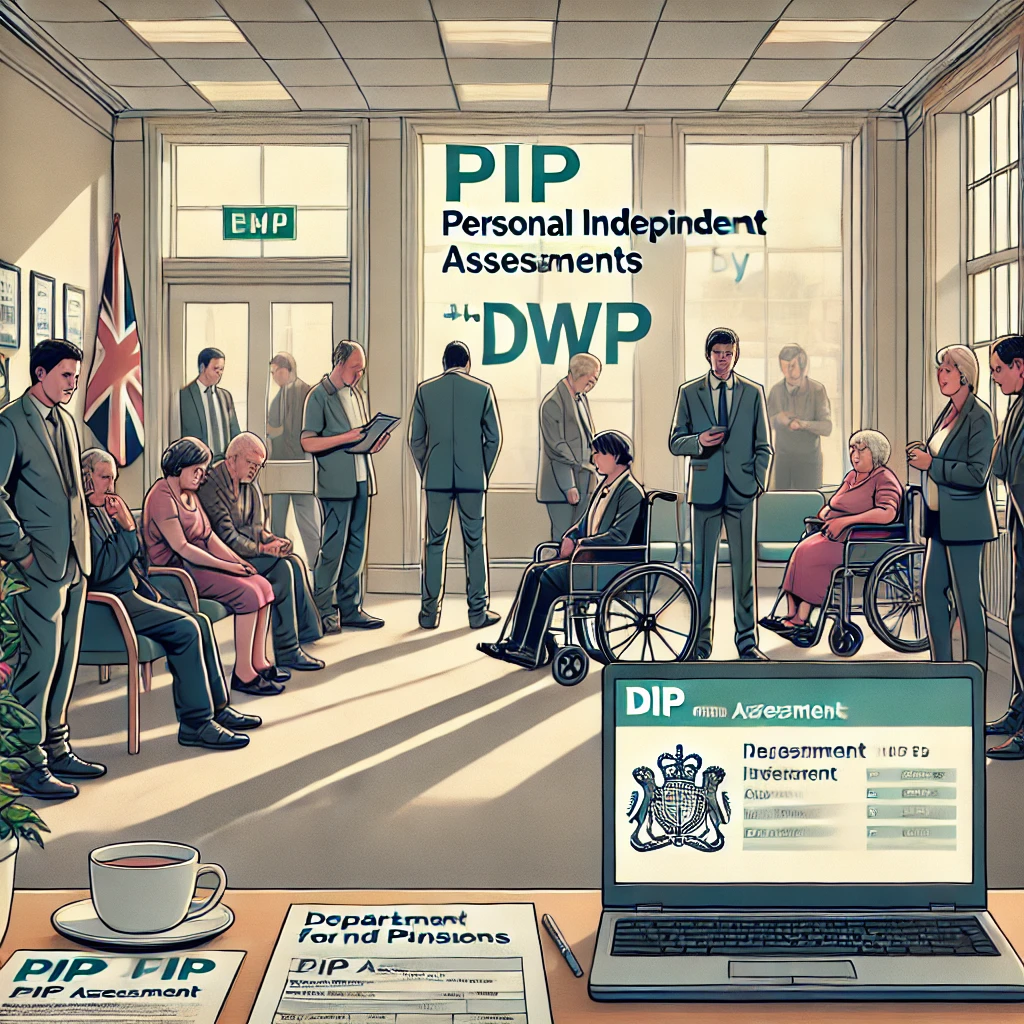The UK government recently introduced significant changes to Personal Independence Payment (PIP) assessments under the Department for Work and Pensions (DWP). These updates aim to streamline the process but have left many claimants uncertain about what to expect. Whether you’re applying for PIP for the first time or preparing for a reassessment, here are 10 crucial things you need to know.
Read Also: World War 3 News: Latest Updates and Expert Predictions
1. Simplified Application Process
The DWP has introduced a more straightforward application form for new claimants. The new format focuses on reducing redundancy, making it easier for applicants to provide relevant details about their daily living and mobility needs.
Pro Tip:
Take your time to complete the application and provide as much detail as possible about how your condition impacts your daily life.
2. Enhanced Digital Access
DWP has rolled out a new online portal where claimants can submit their applications, track their progress, and upload evidence. This digital shift is designed to improve efficiency and reduce delays caused by lost documents or postal issues.
Pro Tip:
Keep digital copies of all your medical evidence and correspondence to ensure you have backups.
3. Changes to Assessment Criteria
The criteria for assessing mobility and daily living needs have been updated to reflect more nuanced aspects of certain conditions, particularly mental health. This change aims to ensure fairer evaluations for individuals whose disabilities aren’t solely physical.
4. Focus on Medical Evidence
The DWP now places greater emphasis on up-to-date medical evidence provided by healthcare professionals. Claimants are encouraged to gather detailed letters or reports from their doctors, therapists, or specialists.
5. Reduced Face-to-Face Assessments
Face-to-face assessments are being phased out for many claimants who can provide sufficient medical evidence. This change benefits those with conditions that make in-person assessments challenging or stressful.
6. Improved Communication
Claimants will now receive clearer, more detailed explanations if their application is denied or if they’re awarded a lower PIP rate than expected. The aim is to reduce confusion and empower claimants to make informed decisions about appeals.
7. Shorter Waiting Times
The DWP has committed to reducing the time it takes to process PIP applications. Enhanced staffing and streamlined procedures aim to cut waiting times significantly.
8. Automatic Reassessments for Certain Conditions
Certain long-term or degenerative conditions will now automatically trigger reassessments only at extended intervals, reducing stress for claimants with stable but permanent conditions.
9. Dedicated Support Teams
The DWP has established dedicated teams to assist claimants through the process. This service includes helplines and online chat support to address common concerns and queries.
10. Potential Impact on Appeals
With clearer guidelines and more robust decision-making processes, the number of appeals is expected to decrease. However, claimants are still encouraged to appeal decisions if they believe their needs have been underestimated.
Conclusion:
The changes to PIP assessments by the DWP represent a significant shift in how claims are handled, aiming for a more efficient, transparent, and claimant-friendly process. By understanding these updates, you can navigate the system with confidence and ensure you receive the support you’re entitled to.
Read Also: World War 3 News: Latest Updates and Expert Predictions
Frequently Asked Questions (FAQs) PIP Assessments DWP Changes
Q1. What Is PIP?
PIP is a UK government benefit designed to help individuals with disabilities or long-term health conditions manage the extra costs associated with their conditions. It is divided into two components: daily living and mobility.
Q2. Who Is Eligible for PIP?
To qualify for PIP, you must:
- Be aged 16 or older and have not reached State Pension age.
- Have a health condition or disability that affects your daily living or mobility for at least three months and is expected to continue for at least nine more months.
Q3. How Do I Apply for PIP?
You can apply for PIP via phone or the newly launched online portal. During the process, you’ll need to provide:
- Personal details (e.g., name, address, National Insurance number).
- A description of how your condition affects your life.
- Supporting medical evidence.
Q4. What Happens During a PIP Assessment?
PIP assessments evaluate how your health condition impacts your daily living and mobility. Assessors use a points-based system to determine your eligibility and payment rate.
Q5. What Are the Rates for PIP?
PIP consists of two components:
- Daily Living Component:
- Standard rate: £68.10 per week.
- Enhanced rate: £101.75 per week.
- Mobility Component:
- Standard rate: £26.90 per week.
- Enhanced rate: £71.00 per week.
Q6. What If My PIP Claim Is Denied?
If your claim is denied, you can request a mandatory reconsideration within one month of the decision. If the decision remains unchanged, you can appeal to a tribunal.
Q7. How Do the DWP Changes Impact Existing Claimants?
Existing claimants may notice reduced reassessment frequencies, quicker response times, and enhanced communication regarding decisions. However, the basic eligibility criteria remain unchanged.
Q8. Can I Appeal a PIP Decision?
Yes, you can appeal if you believe the decision does not reflect your needs. Provide additional evidence to strengthen your case during the appeal process.
Q9. How Long Does It Take to Process a PIP Application?
Under the new changes, the DWP aims to process applications within 8-12 weeks. However, this timeframe may vary depending on individual circumstances.
Q10. Will These Changes Affect My Payments?
Your current payment rates will not be impacted unless a reassessment determines a change in your needs.




